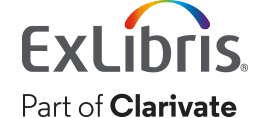Ilana Sacknovitz, Ex Libris
A key role of universities across the globe is to promote and support research efforts, including obtaining grants, curating research data, keeping track of the data, and disseminating the research findings in academic journals. Among the fundamental elements of a successful research process are effective data and metadata management, a robust repository, adequate analytics and reporting capabilities, and compliance with regulatory processes.
Supporting these activities presents a challenge for many universities. As Tracey Clarke and Andy Bussey of the University of Sheffield Library discuss in their recent article, Research Information Systems – fit for the future? A report on the situation and plans of the University of Sheffield Library, multiple systems are currently used to manage research data and output. The lack of integration between these systems and the resulting inability to manage all aspects of a process in one place creates complexity and difficulty in managing data flows and processes.

Clarke and Bussey note that there are gaps in functionality in areas such as linking output to grants and sources of funding, finding potential collaboration opportunities, and identifying research strengths and weaknesses. ![]()
For example, as Clarke and Bussey point out, the library staff who support open access struggle to fully manage the customer process. There is a significant lack of integration between the different systems involved, from the point at which a researcher contacts the library staff to the final publication of the open access copy.
In addition, Clarke and Bussey note that there are gaps in functionality in areas such as linking output to grants and sources of funding, finding potential collaboration opportunities, and identifying research strengths and weaknesses. Bibliometric data is also limited, with metrics being produced by a variety of different sources that must be separately consulted.
Discovery presents yet another challenge. Specifically, Clarke and Bussey note that “it is not currently possible to harvest records about datasets published in repositories outside the university.” While a great deal of information exists to support the university’s research, “there is no structured way to pull this into existing systems and make it usable and meaningful in a resilient and sustainable way.”
For these reasons, the University of Sheffield decided to join the Ex Libris Esploro Development Partner program. The Esploro research platform will provide the university with the following key benefits:
- Facilitate the management of different research assets and output (such as articles, datasets, creative works, and theses), linking between the different assets and output (for example, linking a dataset to the publications that cite it), and integrating processes that are managed within different systems.
- Enable discovery both of research output stored in Esploro and related research assets deposited in external discovery systems, particularly externally deposited datasets that cannot currently be handled by the discovery systems at the university.
- Facilitate analysis and reporting, providing the research office with the metrics required for external compliance purposes as well as internal performance measurement.
Read the full report by the University of Sheffield Library, published in the o|bib journal.
November 5, 2018






